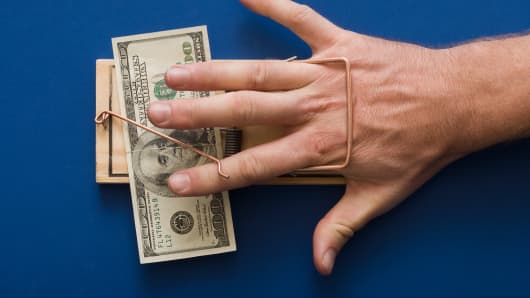Read MoreSorry, you can't retire yet
A 2013 Fidelity study points to yet another danger: It found that, of 180,000 people who took out 401(k) loans over the past 12 years, 66 percent took out more than one loan, 25 percent borrowed three or four times, and 20 percent did so five times or more. Thus, initial borrowing could put you in danger of becoming a repeated borrower, thereby causing even greater damage to your retirement.
So for all these reasons and more, discipline yourself to avoid borrowing from your 401(k) or other workplace retirement plan, no matter how badly you need cash. Find another way to get it. Later, during your comfortable retirement, you'll come to appreciate what a huge favor you did for yourself by allowing your account to grow without setbacks.
—By Ric Edelman, chairman and CEO of Edelman Financial Services




